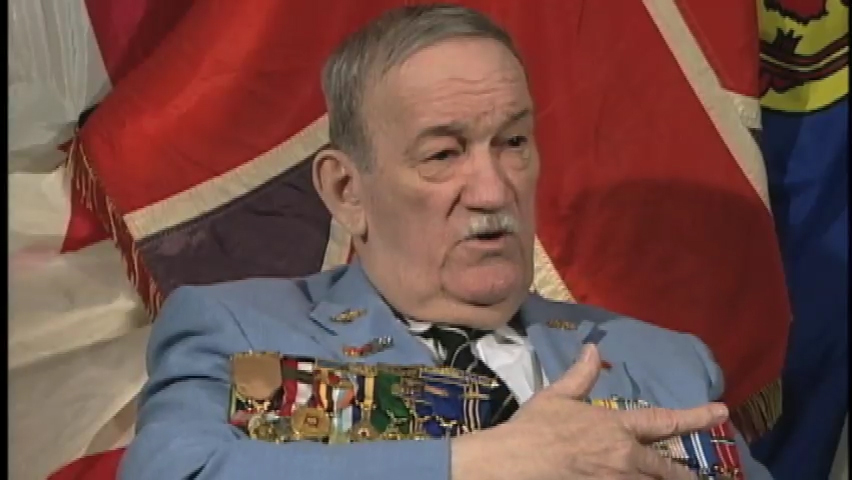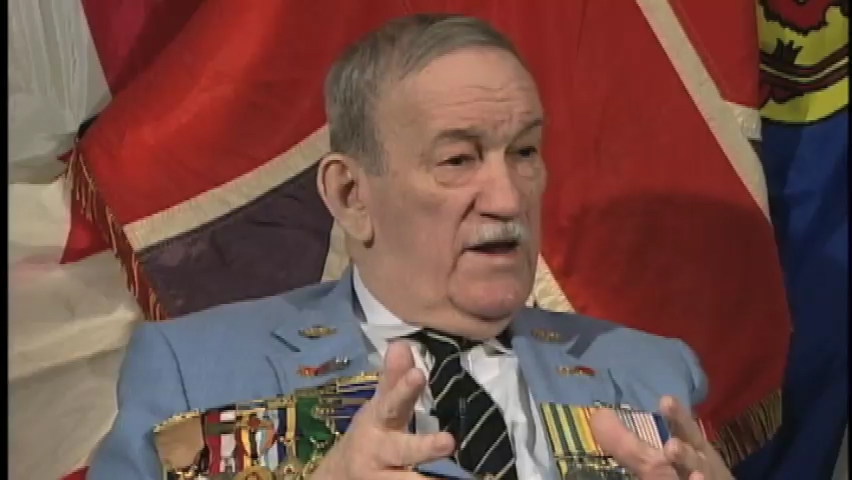WWII Planes of my Childhood
Heroes Remember
WWII Planes of my Childhood
I remember when the war started, I was out in the field. I was
turning hay over I think it was, or doing something in the field.
It's a long time ago 1939, and I'd be nine years old at that time
and I remember the war. I'd heard on the radio that war was
declared and I was out working in the field and all of a sudden
I heard this whistling in the... and of course at that time
there was no commercial planes, no travel, or no passenger
planes so to speak and there was the odd club plane.
There was a little flying field out by us, just a gravel, what do
you call it, runway, dirt runway. And there was a few little
club planes there and people had their own planes. They'd build
them and take them out there and they were flying and just for
pleasure. A few air shows were there. I was out at the one air
show there I guess it was in '35 or something like that.
But then they started building up the airport for the war and it
was not where the old one was at. It was across the tram carts.
Tram carts went right through this thing, so it got to be quite
a large airport when it was done. But the first planes I remember
I heard this whistling and I said, "What the heck is that?"
I looked up and I seen these three big monsters coming.
They were the old Strangers (sp) they were called then.
They were sea planes, amphibious. And they, two wings were
above the fuselage and one motor, a pusher motor behind.
And the whistling was the, the wires that went between the wings,
that was the whistling of the air, the wind going through them.
Really, quite a, quite a sound. But they went and landed at
the airport. So they had numerous around after that, around
different places around the area. They had a place over in North
Sydney they used to land the planes there. I remember, oh about
three planes crashed. One crashed right down behind our place
there, by a lake, went into a bog. We all ran down the next day
when we heard about it and it crashed early in the morning about
6 o'clock. We went down and got there about 10. We go through in
the woods, and went in there and the plane was all, all beat-up.
It hit a pole before it landed and it jetted its bombs, and so,
the pilot was killed and a couple more were badly injured.
One fella got out of there and walked to a house, to try to get a
phone to call the airport and so, they got in there and so when
we got down they had guards there and everything and wouldn't let
us around the plane. But I remember the plane was full of holes,
bullet holes, it was shot by a sub. Then there was another one
landed again, another Lockheed Hudson. It went up a field, long
field and it went and it was going along good, belly landed,
went, probably went into a lake up at the end of this field.
But it hit a big rock and it hit the nose, which was a plastic
nose, glass nose, and turned the plane right around and that
stopped it there. But that's all built up with houses, eh.
That's what they call MacGwyer Drive, it's all, the whole
thing is houses where that plane went up. And there was
several more that also remember, were shot by subs.
Related Videos
- Date modified:





